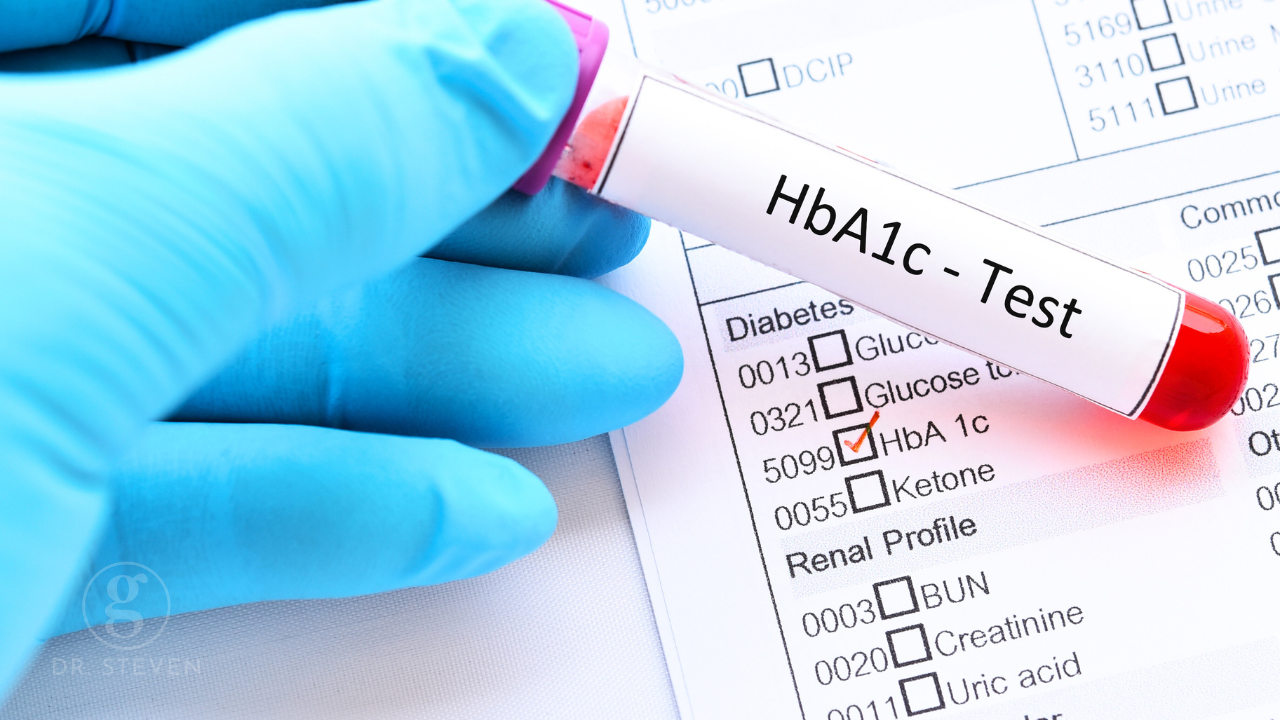Why Your HbA1C Is Higher After Starting a Low-Carb Diet

Starting a low-carb diet often brings many positive changes—weight loss, improved energy, and better blood sugar control. However, some people are surprised to see their HbA1C, a key blood sugar marker, increase temporarily after making these healthy lifestyle changes. Don’t worry—this isn’t necessarily bad news. Let’s break down why this happens and what it means for your health.
What Is HbA1C, and Why Does It Matter?
HbA1C measures how much glucose (sugar) has attached to the hemoglobin in your red blood cells over the past three months. It provides an average of your blood sugar levels over time, giving insight into long-term blood sugar control. For most people, a healthy HbA1C range is between 4.8% and 5.2%, with levels above 5.7% indicating pre-diabetes or diabetes.
When you adopt a low-carb diet, you may expect HbA1C to drop due to reduced glucose intake. While this often happens in the long run, it’s not unusual for HbA1C to rise temporarily at the start. Here’s why.
Reason 1: Healthier Red Blood Cells Live Longer

HbA1C reflects how much sugar your red blood cells (RBCs) are exposed to during their lifespan. Typically, RBCs live for 90 to 120 days, and older cells accumulate more glucose exposure over time.
When you start improving your health through better diet and exercise, your red blood cells may live longer. This extended lifespan increases the time they’re exposed to glucose, resulting in a slightly higher HbA1C reading—even if your blood sugar control is improving. This temporary effect is a positive sign of overall better cellular health.
Reason 2: Temporary Stress and Cortisol Levels

Switching to a low-carb diet is a significant change for your body. Early on, this dietary shift can act as a mild stressor, increasing cortisol levels—the stress hormone. Cortisol prompts your liver to release glucose into the bloodstream, potentially elevating your blood sugar levels temporarily.
As your body adjusts to the low-carb diet and cortisol levels stabilize, this effect typically diminishes. Your HbA1C will begin to reflect improved blood sugar control over time.
Reason 3: Initial Blood Sugar Fluctuations

During the first few weeks of a low-carb diet, your body adapts to burning fat for fuel instead of carbohydrates. This metabolic transition can lead to short-term fluctuations in blood sugar levels. These fluctuations might slightly elevate your HbA1C, even as your body becomes more efficient at managing glucose in the long term.
Why This Increase Isn’t a Bad Thing
A higher HbA1C at the start of your low-carb journey doesn’t mean you’re doing something wrong. In fact, it’s often a sign that your body is adapting to the new diet and improving its metabolic health. Over time, as your red blood cells stabilize and your body adjusts to the dietary changes, your HbA1C should reflect the benefits of your efforts.
Key Takeaways
- What HbA1C Measures: HbA1C reflects long-term blood sugar levels based on glucose exposure to red blood cells.
- Healthier Red Blood Cells: Longer-living RBCs in healthier individuals may temporarily raise HbA1C.
- Cortisol’s Role: Early dietary changes can increase cortisol, temporarily elevating blood sugar.
- Patience Pays Off: HbA1C improvements often take time to reflect the positive effects of a low-carb diet.
If you’ve seen your HbA1C rise after starting a low-carb diet, don’t be discouraged. This is likely a temporary adjustment, and your long-term health improvements will soon shine through.
Resources
- Selvin, E., et al. (2011). HbA1c as a predictor of diabetes and cardiovascular disease. Diabetes Care, 34(1), 91-96.
https://doi.org/10.2337/dc10-1194 - Monnier, L., et al. (2007). Glucose variability and diabetes complications: Does it matter? Diabetes Care, 30(2), 300-305.
https://doi.org/10.2337/dc07-s017 - Jenkins, D. J., et al. (2018). Red blood cell lifespan and its relevance to HbA1c interpretation in diabetes. Journal of Diabetes Science and Technology, 12(1), 16-24.
https://doi.org/10.1177/1932296817719394
Want to learn more about optimizing your health and longevity? Visit our Blog Home Page for more expert insights. If you’re interested in working directly with Dr. G to see if you’re an ideal client, you can explore more here. Additionally, take a look at Dr. G’s supplement line for products designed to support your metabolic health at Cyrene Labs (Cyrene labs products are only available through licensed providers).





